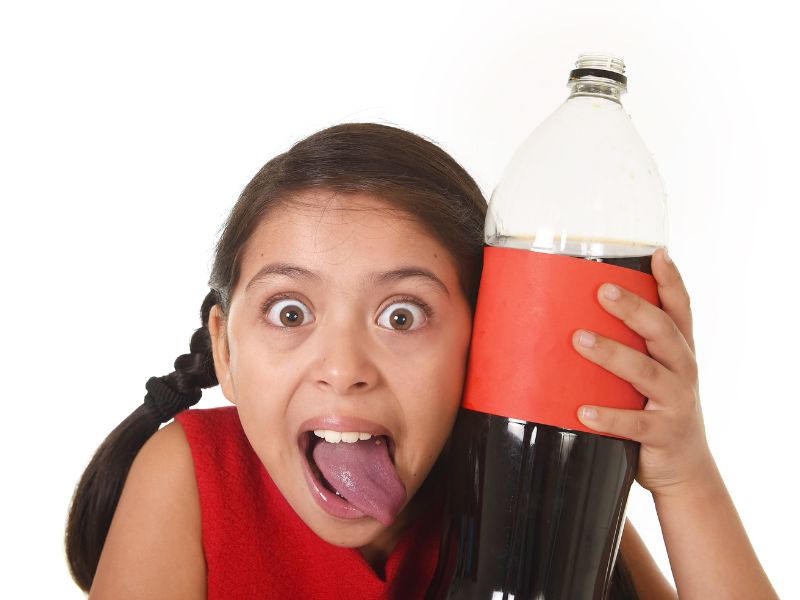Are your kids begging you for drinks from the coffee shop?
Do they love soda?
Are they interested in trying energy drinks? Or coffee? Or tea?
As a board-certified pediatrician, I am asked by parents about whether these caffeine-containing beverages are safe for their children.
My answer is always no.
There is no nutritional value in caffeine, but there are plenty of side effects that can be detrimental to children.
Here’s why I discourage caffeine:
1. It’s addictive. Why start a caffeine habit in childhood? Once addicted to a substance – particularly a stimulant – it’s hard to stop. And if kids try to cut back or quit drinking caffeine altogether, they may experience withdrawal symptoms, such as irritability, fatigue and headaches.
2. Caffeine can cause sleeplessness. Children who drink caffeine may have difficulty falling asleep or staying asleep.
3. Caffeine can cause behavioral changes, such as hyperactivity, restlessness and inattention. Those behavioral challenges can negatively affect school performance.
4. Caffeine can cause physical problems, such as high blood pressure, elevated heart rate, acid reflux, nausea , upset stomach and anxiety.
5. Many products containing caffeine are high in calories and high in sugar. Drinking caffeinated drinks layered in whipped cream can cause weight gain. These are empty calories that can take the place of healthy calories. If a child becomes full by drinking caffeinated beverages, they may not want to eat regular meals and healthy snacks. Increased weight gain in children is linked to obesity, insulin resistance and Type 2 diabetes.
Sometimes kids will tell me that they need caffeine to get through the day. If I hear that, then I probe to see why that is. Are they not getting enough sleep? Is that because they are drinking too much caffeine? Or do they have poor sleep hygiene – such as looking at electronic devices too close to bedtime – and that causes sleep problems, so they then feel as if they need caffeine to function? Do they have an underlying sleep condition, such as sleep apnea? I take the time to get to the root of the problem.
I also recognize that some tweens and teens drink caffeinated beverages because their friends do. It’s part of fitting in. In fact, the C.S. Mott Children’s Hospital National Poll on Children’s Health asked a national sample of parents of children 13-18 years old about their teen’s caffeine consumption. The researchers found that 1 in 4 parents say their teen consumes caffeine every day or nearly every day.
I know it’s hard, but I encourage kids to choose healthier beverages. Water and low-fat milk truly are the best options. If out with friends, I encourage kids to look for non-caffeinated options that may also be low in sugar.
Tips for Parents
• Read Labels. Always check the labels of foods and beverages for caffeine content. Caffeine is found in many sodas, coffee, many teas, energy drinks and chocolate.
• If your child is consuming caffeine, watch for side effects and discuss any concerns with your child’s doctor.
• Talk with your kids about the dangers of drinking caffeine. An open and honest conversation can go a long way.
• Encourage alternatives. Offer water, milk, or caffeine-free herbal teas as alternatives to caffeinated drinks.
Be a good role model and set a positive example. Try not to drink caffeine in front of your kids.
Abha Saha, MD, is a board-certified pediatrician with the Mid-Atlantic Permanente Medical Group. She sees patients at the Kaiser Permanente Tysons Corner Medical Center.

